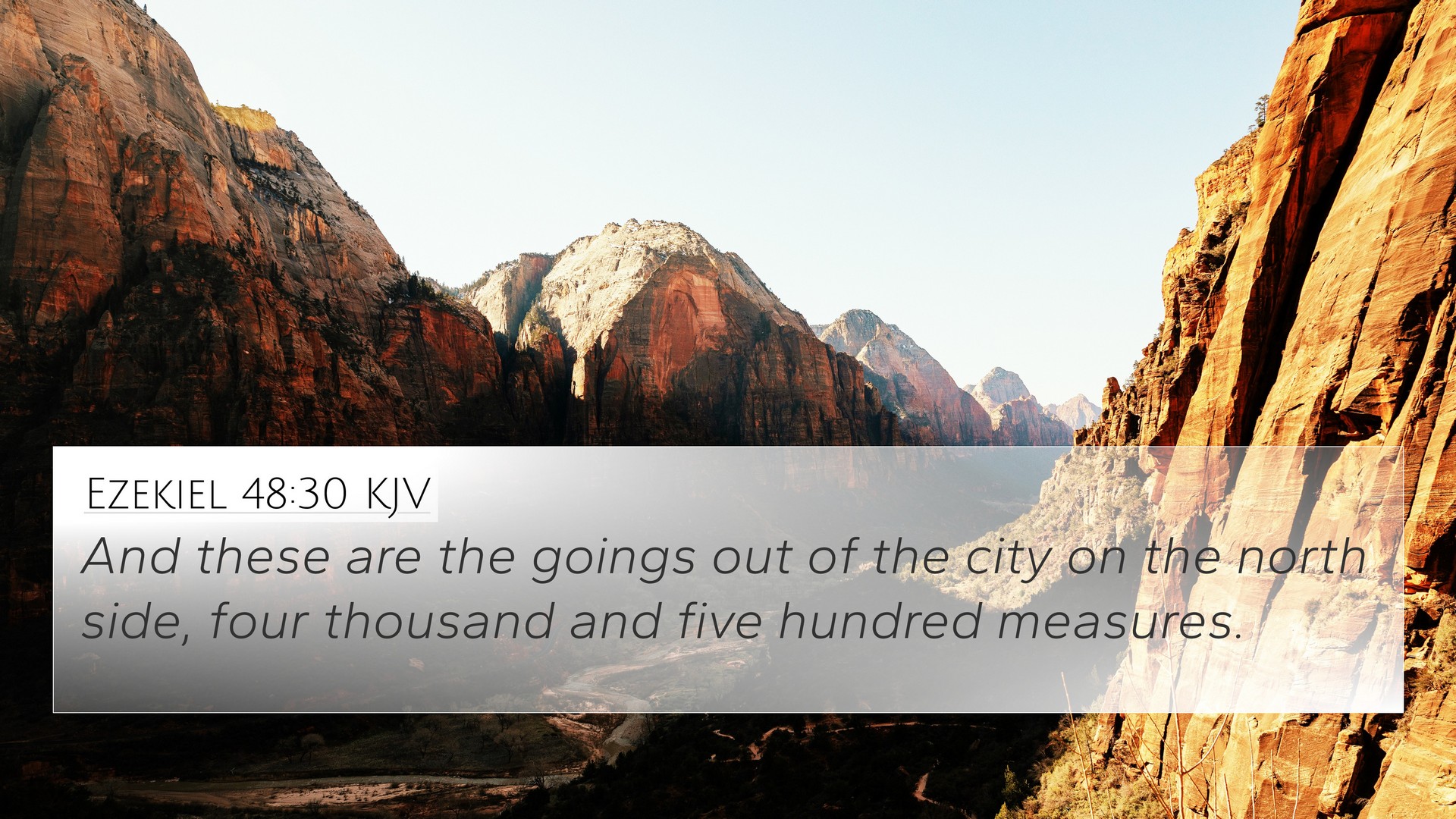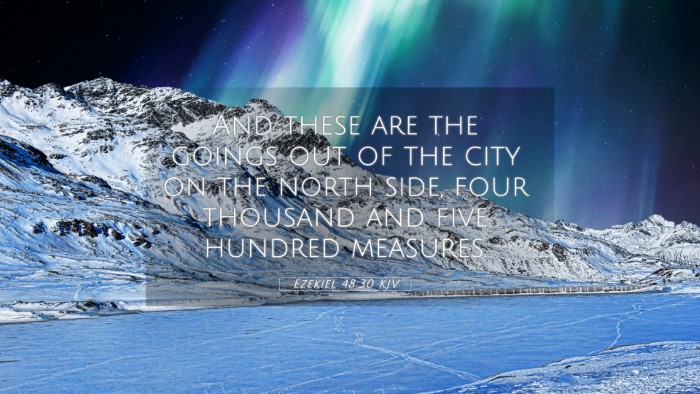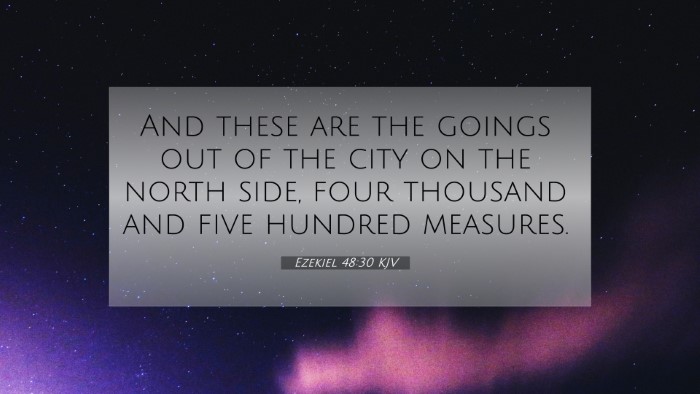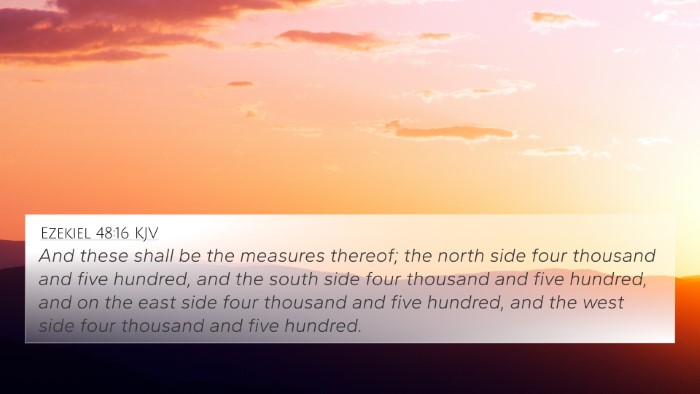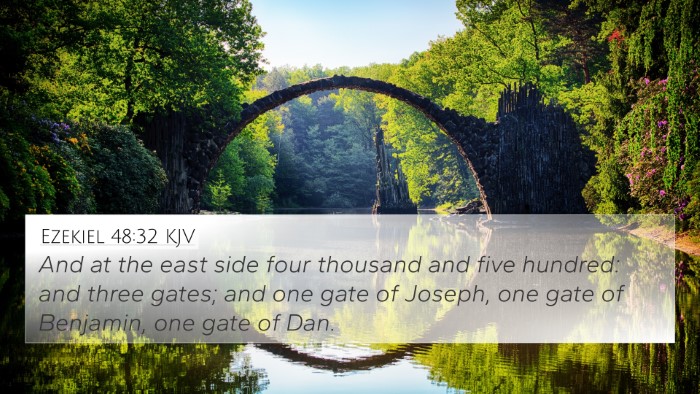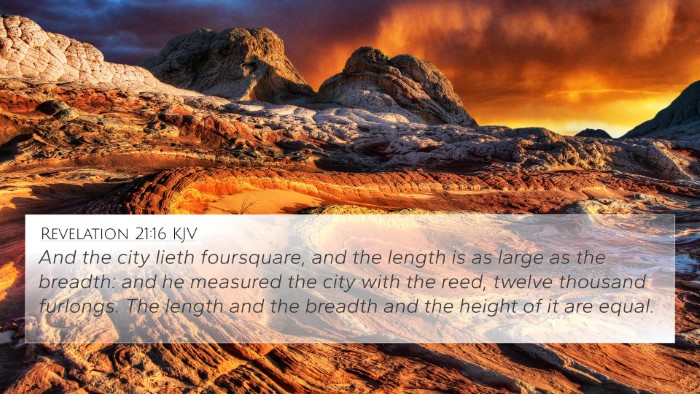Understanding Ezekiel 48:30
Ezekiel 48:30 presents a vision of the future city of Jerusalem, detailing its gates and aspects that convey significant spiritual meanings.
Verse Text
"And these are the goings out of the city on the north side, four thousand and five hundred measures; the gates of the city shall be after the names of the tribes of Israel: the gate of Reuben, one; the gate of Judah, one; the gate of Levi, one; the gate of Issachar, one;"
Commentary Insights
Matthew Henry's Commentary
Matthew Henry emphasizes the significance of the names of the tribes of Israel being assigned to the city gates. Each gate symbolizes the identity and heritage of the tribes, reminding the inhabitants of their historical connections to God's promises and blessings. The detailed measurements reflect God's order and the established boundaries that He sets for His people, governing not only physical locations but also spiritual aspects of their lives.
Albert Barnes' Notes
Albert Barnes highlights the purpose of restoring Israel as a nation under divine leadership. The gates named after the tribes symbolize unity and diversity within the people of God. It signifies how diverse groups are represented within the people of God, encouraging unity in worship and service. Barnes notes the prophetic significance of these gates pointing to a future restoration where God’s people gather in His presence.
Adam Clarke's Commentary
Adam Clarke elaborates on the measurements of the city, describing them as symbolic of perfect order and divine arrangement. The gates named after tribes not only provide access to the city but also unify the people around their shared identities. Clarke connects this verse to the overall restoration theme in Ezekiel, depicting God’s promise to bring His people back and re-establish them in their land. This, he notes, fulfills a theological narrative across Biblical history.
Related Bible Cross References
- Revelation 21:12: "And had a wall great and high, and had twelve gates, and at the gates twelve angels, and names written thereon, which are the names of the twelve tribes of the children of Israel."
- Isaiah 54:2: "Enlarge the place of thy tent, and let them stretch forth the curtains of thine habitations: spare not, lengthen thy cords, and strengthen thy stakes."
- Hebrews 11:10: "For he looked for a city which hath foundations, whose builder and maker is God."
- Psalm 122:2: "Our feet shall stand within thy gates, O Jerusalem."
- Jeremiah 31:38-40: "Behold, the days come, saith the LORD, that the city shall be built to the LORD from the tower of Hananeel unto the gate of the corner."
- Ezekiel 40:5: "And behold, there was a wall on the outside of the house round about, and in the man's hand a measuring reed of six cubits long, by the cubit and a hand breadth: so he measured the breadth of the building, one reed; and the height, one reed."
- Micah 4:1: "But in the last days it shall come to pass, that the mountain of the house of the Lord shall be established in the top of the mountains; and it shall be exalted above the hills; and people shall flow unto it."
Conclusion
In exploring Ezekiel 48:30, one can discern the layered meanings and connections the verse establishes within the broader context of Scripture. The gates representing the tribes signify God's faithfulness and the restoration of His people, as confirmed by the prophetic visions throughout the Bible. These connections enhance the understanding of how God’s promises interlink various Biblical narratives, providing depth and coherence to the scripture.
